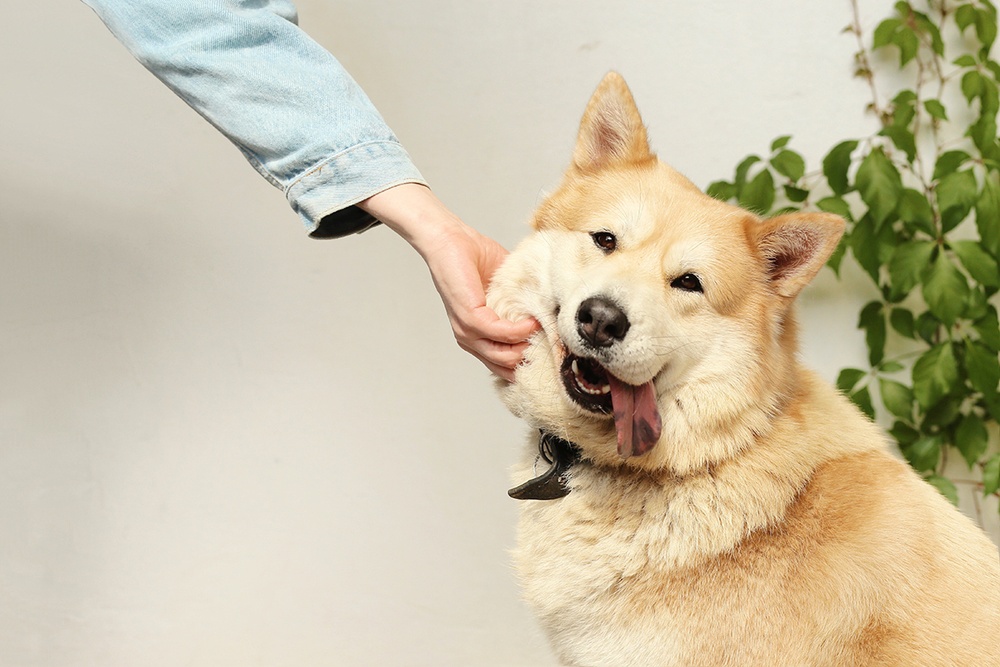What Does It Mean if My Dog is Vomiting Clear Liquid?
Pet owners become upset when their dog’s stomach is feeling unwell. It’s so hard to comfort them and know what's wrong when they can’t simply just tell you. It is important to remember that vomiting is never normal in dogs, even when it is occasional. This article will discuss vomiting in depth so you can feel empowered to know what to do next time this occurs.
What are the Reasons That Dogs Throw Up Clear Liquid?
Excessive Water Ingestion
We've all heard about the dangers of dehydration, but few people realize that it's possible to drink too much water. This is especially true if dogs drink too much water on an empty stomach. It's also possible that your dog drank water contaminated with something that made them sick.
In addition to drinking too much water, it's also possible that your dog simply drank the wrong kind of water. For instance, if you recently took your dog to the ocean for the first time and they went for a swim, they likely drank salt water.. As your dog drinks salt water, it causes indigestion and vomiting. Serious sodium toxicity can occur as well.
Disease of the Kidneys or Liver
Just as with humans, dogs can suffer from kidney and liver diseases. Dogs may have increased thirst even though they're drinking more water than ever. In addition to excessive drinking, dogs with liver and kidney conditions tend to pee more than normal and may start to vomit.
The reason that dogs with kidney or liver conditions vomit is because of how these organs work. Both organs are responsible for acting as filters that clear toxins out of your dog's blood. However, when the organs aren't doing their job, the toxins start building up in the bloodstream, making your dog very sick. These toxins will then cause vomiting.
The scary part about kidney and liver conditions is that your dog can have one for several years without you even knowing.
Pancreatitis or Other Chronic Conditions
The pancreas is a small organ that helps with digestion and controlling your dog's blood sugar levels. When the pancreas becomes inflamed, it can lead to pancreatitis, which will cause your dog to vomit.
In addition to pancreatitis, several other chronic GI conditions can cause clear vomit as one of the symptoms. It could also be from inflammatory bowel disease, a food allergy, or, in severe cases, a form of gastrointestinal cancer.
Because of how severe some of these diseases are, you must see a vet as soon as you notice your dog vomiting clear liquid.
Parasites or Bacterial Infections
Parasites and bacterial infections are two of the most common culprits when it comes to dogs vomiting clear liquid. Parasites get ingested by dogs when they drink contaminated water or come in contact with another dog's poop that has a parasite.
In most cases, parasites and bacterial infections will cause diarrhea and lethargy in addition to vomiting. If you notice these symptoms in addition to clear vomit, a parasite or bacterial infection is possibly to blame.
Stomach Ulcers
Stomach ulcers happen when damage to the stomach lining results in pain, nausea, and bleeding. Stomach ulcers are extremely painful for dogs and typically cause a loss of appetite, weight loss, and even anemia. Stomach ulcers can also cause your dog to vomit clear liquid but often there will be evidence of ‘coffee ground’ appearing digested blood..
Tumors
Tumors are one of the scariest and most problematic conditions that can cause your dog to vomit clear liquid. The only way to know that a tumor is the cause of your dog's vomit is to take them to a vet, where they will perform imaging to visualize the tumor. A veterinarian can also determine if the tumor is cancerous or benign with biopsies, and discuss the best course of action.
Acid Reflux
One of the causes of clear vomit is acid reflux. Acid reflux happens when GI tract bile enters your dog's stomach. It will cause irritation and can also cause vomiting. While the vomit is usually yellow with foam mixed in, it can also be clear.
Dietary Issues
Contrary to what most people think, dogs can have very sensitive stomachs. So, abruptly changing them from one type of dog food to another can cause irritation and indigestion.
Stomach Blockage
Stomach blockages are one of the most serious and frightening reasons for a dog vomiting clear liquid. In most cases, the blockage is because your dog ate something they can't process, such as a sock or another household item. The sock will enter your dog's digestive tract, but they won't be able to pass it and poop it out.
The result is that they won't be able to pass anything else through their system until the blockage is removed. Any food or water they consume will get thrown back up until the blockage is cleared. Unfortunately, unless you get lucky and they somehow pass the blockage manually, your dog will require emergency surgery to remove it.
What Should I Do If My Dog is Throwing Up Clear Liquid?
One to two episodes of clear vomiting is unlikely to be a concern as long as it resolves.However, if the vomiting persists for more than a day without relenting, there's definitely something wrong with your dog. While you may not have to take your dog to the vet immediately, you should at least contact them and tell them what's happening. Your vet will then advise you if you should bring your dog in or give the situation more time to resolve.
What you should NOT do, however, is try to treat your dog with human medications to cure them. Doing so can make the problem worse and can even cause death.
When to Call a Vet
If you notice that your dog has started vomiting clear liquid, you should give your vet a call. While they may not tell you to come in immediately, they will advise you about other signs and symptoms to watch out for. However, if it's been a day or two since the vomiting started and it doesn't show signs of stopping, you should take your dog to the vet immediately.
Most of the conditions associated with clear vomit are serious, so it's important that you don't wait too long to take your dog to the vet. With many of the conditions in this article, time is of the essence, and the worst thing you can do is wait too long.
Fact checked by Veterinarian

Dr. Paula Simons is an Emergency and Critical Care veterinary resident on her way to becoming a veterinary criticalist. She is originally from Philadelphia, Pennsylvania, and completed her veterinary training in Ontario, Canada, at Ontario Veterinary College. Dr. Paula Simons has a particular interest in critical care nutrition, trauma, and pain management. She enjoys the management of surgical patients and troubleshooting complex cases. Additionally, she is a huge advocate for her patients and ensuring their comfort. She has two cats named Moo and Kal, whom she loves dearly. More About Us








